Here are 24 of history's weirdest jobs
Groom of the Stool

Resurrectionist
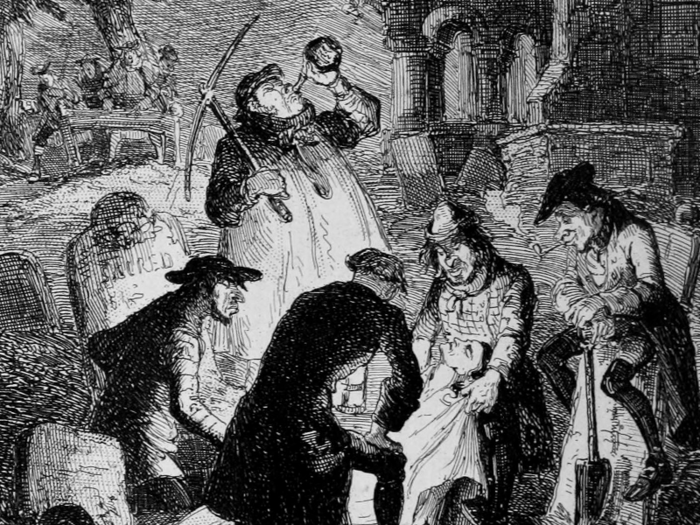
Resurrectionists would dig corpses out of graveyards and sell them to medical schools. Controversy over this practice came to a head upon the discovery of the crimes committed by 19th century serial killers William Burke and William Hare. These two "resurrection men" couldn't wait to merely dig up bodies. They actually murdered people in order to sell their corpses to an instructor at an Edinburgh private anatomy school, according to the New York Academy of Medicine.
Fuller
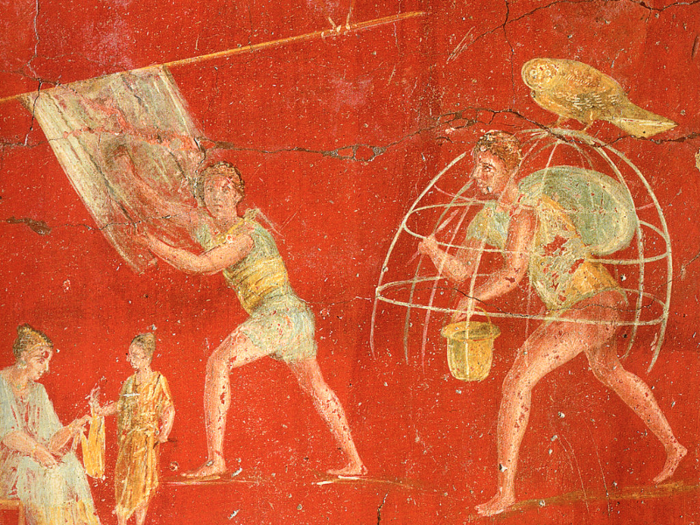
Fullers were responsible for Ancient Rome's dirty laundry.
No one likes cleaning clothes, but how bad could it be?
Pretty bad, actually.
Fullers had to stand in tubs filled with water and alkaline chemicals — oftentimes that meant stale urine collected from public restrooms, according to the Encyclopedia of Ancient History — and stomp, scrub, and wring the cloth to get it clean.
Rat Catcher
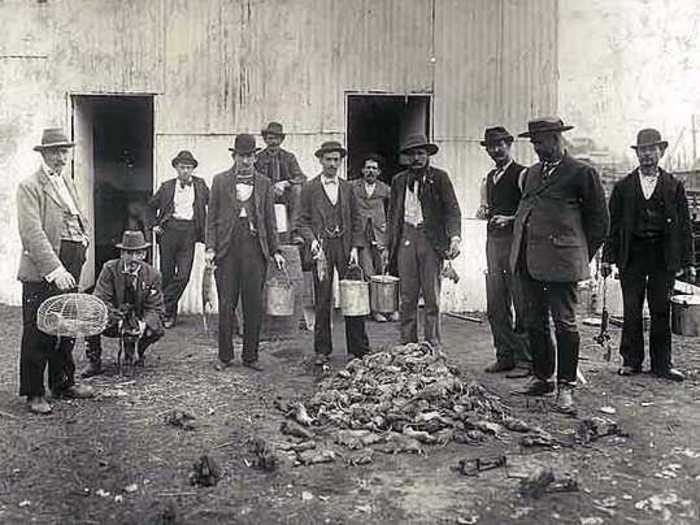
Talk about a rat race.
Rat catchers snagged the disease-carrying rodents that once ran rampant in residential neighborhoods. Some rat catchers made it big, like Jack Black (no, not our Jack Black). Black was given the awesome title of "rat-catcher and mole-destroyer" by none other than Queen Victoria. according to Victorian Gothic. One Victorian writer recounted the man's terrifying penchant for playing with the rats he caught (emphasis added):
"Here I saw him dip his hand into this cage of rats and take out as many as he could hold, a feat which generally caused an ‘oh!’ of wonder to escape from the crowd, especially when they observed that his hands were unbitten. Women more particularly shuddered when they beheld him place some half-dozen of the dusty-looking brutes within his shirt next his skin; and men swore the animals had been tamed, as he let them run up his arms like squirrels, and the people gathered round beheld them sitting on his shoulders cleaning their faces with their front-paws, or rising up on their hind legs like little kangaroos, and sniffing about his ears and cheeks."
Quite a party trick.
Whipping Boy
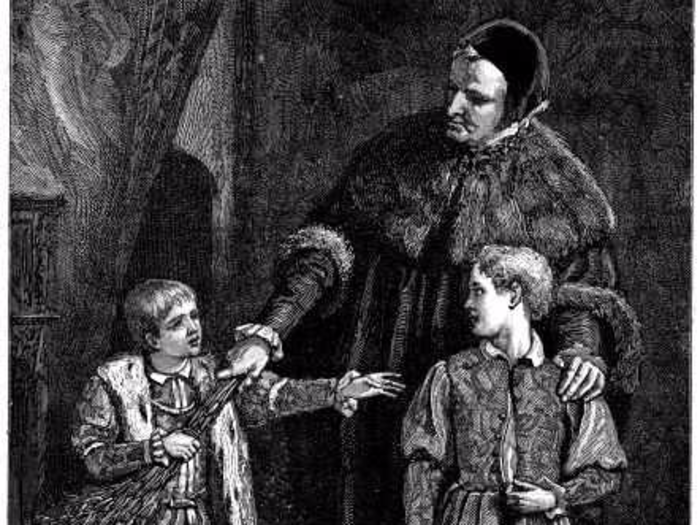
How do you solve a problem like disciplining a spoiled young prince?
Simple: give them a new friend to play with... and then beat the kid whenever the prince messes up. Sounds totally healthy.
Surprisingly, sometimes being a whipping boy came with a few sweet perks. The ill-fated Charles I elevated his whipping boy to the position of the first Earl of Dysart in 1643, according to the History of Parliament.
Probably out of guilt.
Computer

Computer used to be somebody's work title. Before electronics took over, these workers — usually women — would convert figures and crunch other numbers by hand, according to NASA.
Ornatrices
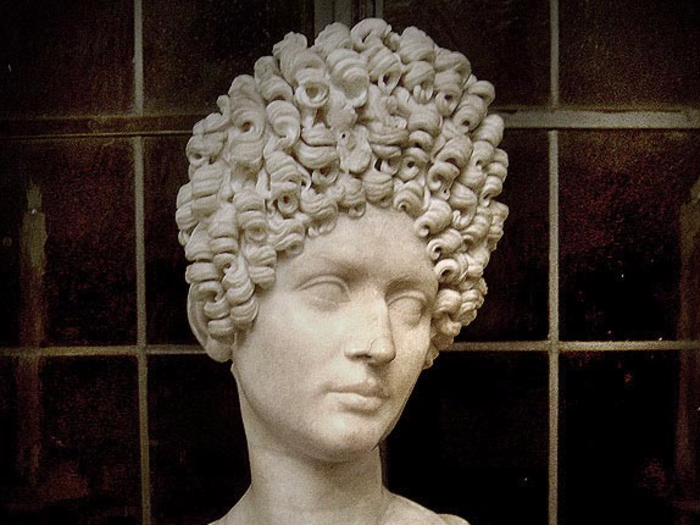
Remember that awesome Bravo show Tabitha's Salon Takeover?
Well, if that taught you anything, it should be that styling hair can be a nightmare.
Back in ancient Rome, it was even worse. Ornatrices were enslaved hairdressers responsible for creating the ornate and insane looks that were popular at the time. An ornatrix had to deal with lots of gnarly ingredients to cater to fashionable Romans — hair dye was made up of rotten leeches, squid ink, pigeon poop, and urine, according to Listverse.
Powdermonkey

If you were a young boy on a warship back in the seafaring days, your quick hands would be called upon to stuff gunpowder back into cannons, according to the Civil War Trust. Your title: Powdermonkey.
Lector
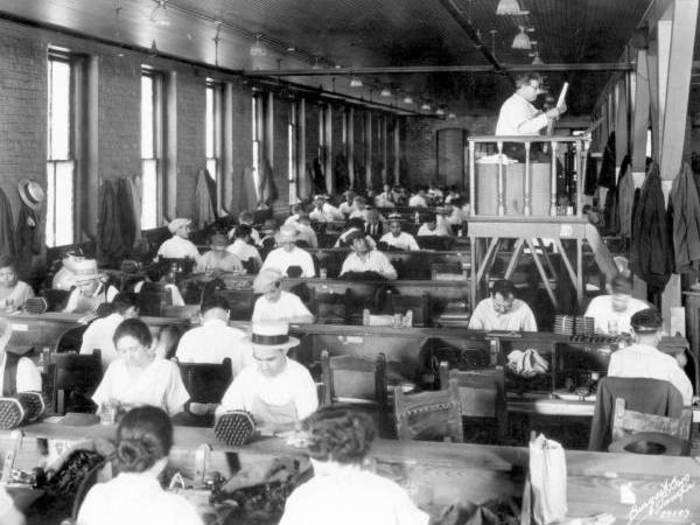
This one's actually kind of nice.
Factory work can be rough and monotonous, so lectors would read news and literature aloud to their colleagues, according to the Tampa Tribune.
Ewerer
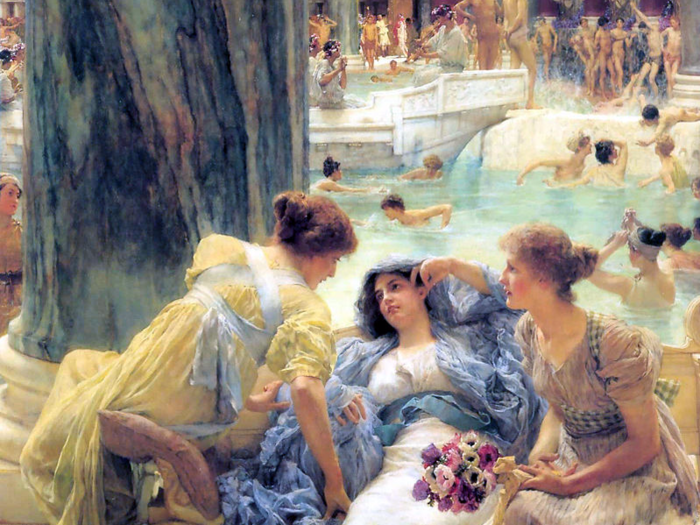
Forget running to grab your boss hot coffee.
These medieval laborers were sent out to get hot water for nobles. According to Medieval Terms, ewerers' responsibilities included providing warm water for hand washing, drying the king's clothes, and drawing the monarch's bath.
Barber

I know what you're thinking. How weird can cutting hair be?
Well, imagine a world where you not only hit up the barbershop for a trim, but also for that achy tooth and maybe some light surgery.
Barber-surgeons removed lice, trimmed hair, shaved beards, removed teeth, and often let blood, according to the Chirugeon's Apprentice.
The classic barber pole is a vestige of the profession's medical roots. The brass tip represents the basin that collected the patient's blood, while the blue and red ribbons represent bandages and blood.
Phrenologist
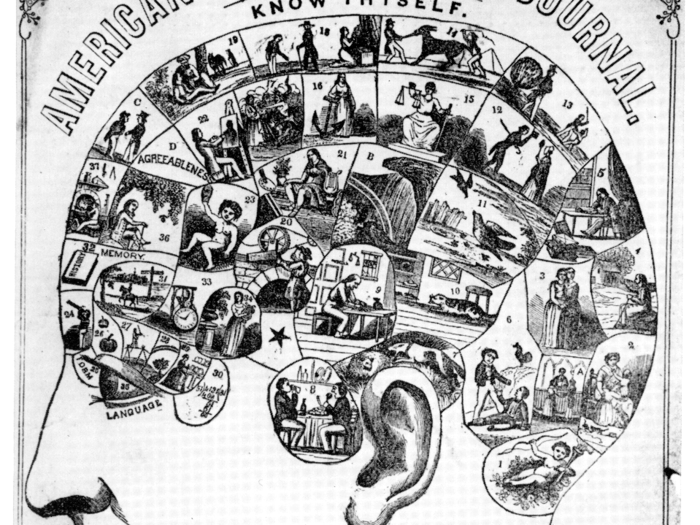
Before it was dismissed as a racist, awful pseudoscience, lots of people went to phrenologists, who could "read" your intelligence by the shape of your head. Yikes.
Taster
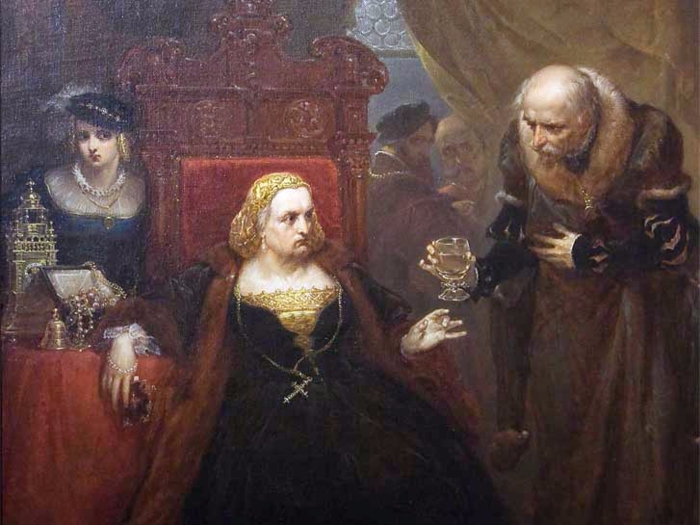
Getting hired to eat food all day? Yes please. Where do I sign on?
Wait — there's a chance the food might be laced with lethal poisons, according to Listverse? Because it's being served to a tyrant that multiple people are probably trying to kill at any given time?
Yeah, never mind.
Necessary Woman
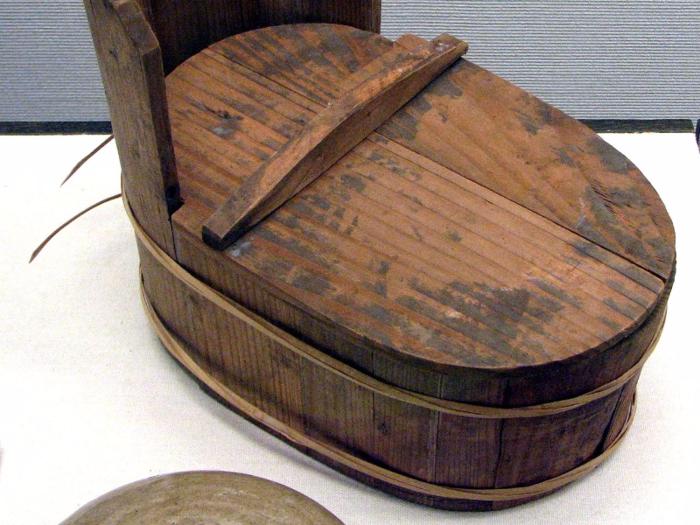
It was necessary for these women to deal with a lot of grossness on a daily basis.
According to Historic Royal Places, the necessary woman had the coveted post of emptying chamber pots. In the case of the King's necessary woman, the pay was pretty dope for the time — £60 with an additional bonus for lodgings and supplies.
Alchemist

When we think of alchemy, we tend to think of medieval crackpots attempting to turn random items into gold.
Still, as Smithsonian Magazine reported, alchemy wasn't totally a waste; the founder of modern chemistry Robert Boyle essentially ripped off an alchemist's research to further his own studies.
Knockknobbler

Knockknobblers were tasked with chasing dogs out of church during services, according to FamilyTree.com. This one raises so many questions. Why not just invite the dogs in (dogs are great)? Was this such a big problem that they had a whole position for it? What were the qualifications? Where did the word knockknobbler come from?
Witch Hunter
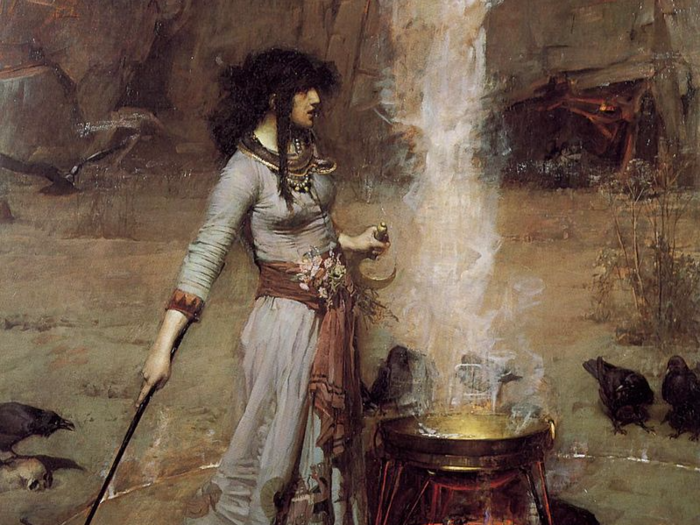
Forget everything you learned in that delightfully cheesy Vin Diesel flick. Witch hunters were bad news back in the day.
Of course, this title was more like a side job than a full-time career, for most people.
Matthew Hopkins wasn't like most people. According to the British Museum, this self-appointed "Witch Finder Generall" ditched his legal gig and swept through Essex, Suffolk, Norfolk, and Huntingdon, searching for "witches." His insane hunts featured torture and killed around 230 people between 1644 and 1647.
Pin Setter
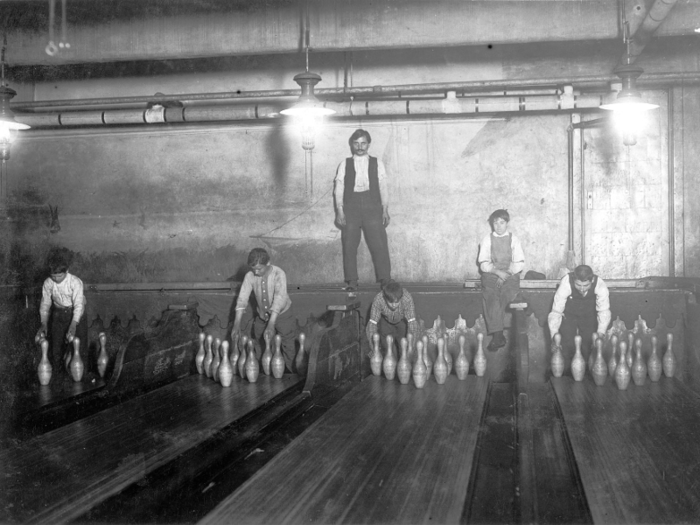
This one's pretty straightforward. Before mechanical pin setters came out in 1936, boys were hired to set the pins, according to Old Bowling.
Ice Cutter

Before you could get ice from your fridge, you had to cut it from a lake. You'd hire an ice cutter to do so, as Gizmodo previously reported.
Badger

No, we're not talking about the animals, here.
Back in the day when the farmer's market was just the market, folks called badgers would buy produce from the farmer, bring it to market, and sell it to the customer, according to Census 1891. Linguists think the phrase "badger someone" came from their relentless salesmanship.
Leech Collector
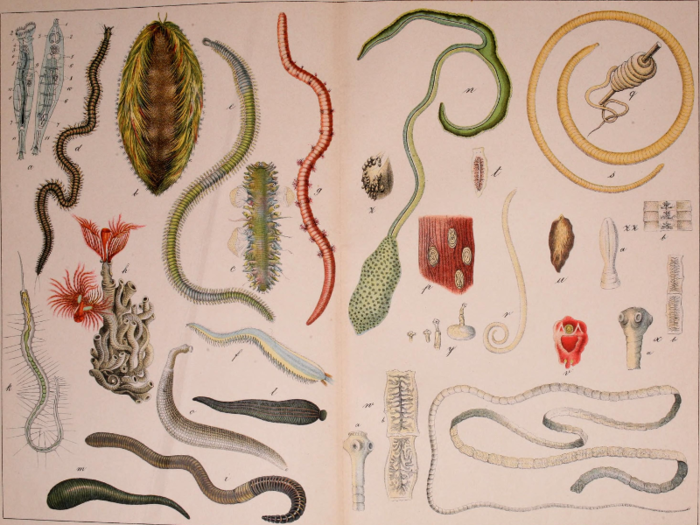
Back when medicine was in its "let's just bleed the patient to death" phase, people called leech collectors would cull leeches from the ground with animal legs and then sell them to doctors, who would then stick them on people to "treat" them.
They did pretty well during the "leech craze" of the 1800s, according to the Science Museum.
Chimney Sweep
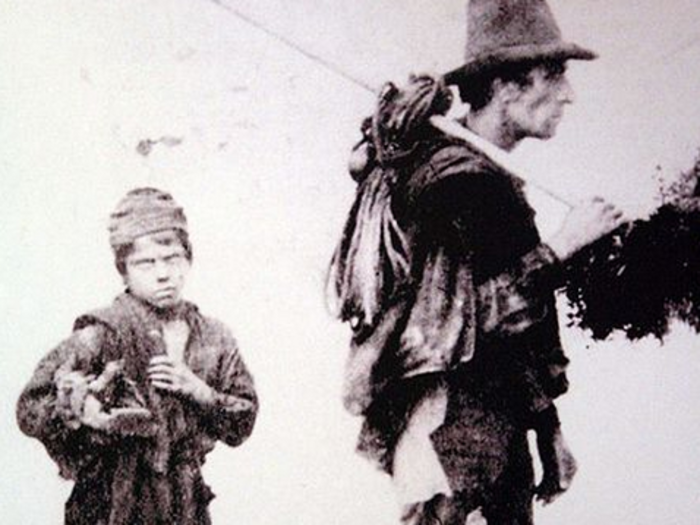
The chimney sweep life was nothing like the rooftop jamboree depicted in "Mary Poppins."
Chimney sweeps cleaned out the soot that built up over winters spent burning wood to keep warm. Master sweeps essentially bought children from impoverished parents, according to the CT Sweep blog. Kids could fit into the chimneys better, and would suffer health issues from the harsh work.
Daguerreotypist

Nothing ever changes. Before we had selfies, we had daguerreotypes, the earliest kind of publicly available photograph. These images on polished silver were made by dedicated daguerreotypists. According to The Met, they became popular after being introduced in Paris in 1839.
Knocker-up
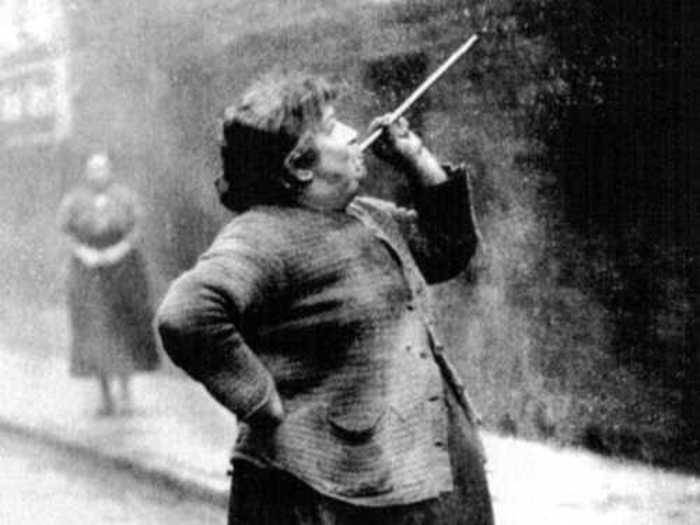
How did people get up for work before alarm clocks? They hired a knocker-up to tap or shoot peas at their windows at an appointed time, according to Mental Floss.
Must've been pretty effective; after all, people don't have snooze buttons.
Popular Right Now
Popular Keywords
Advertisement